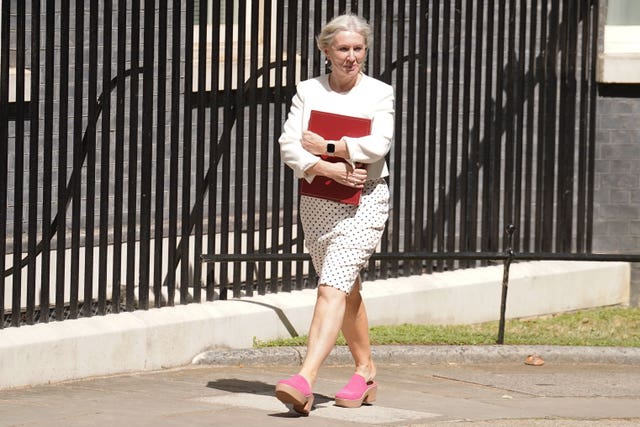
James O'Brien 10am - 1pm
15 July 2022, 11:13

The Government has proposed an amendment which would prevent social media sites from immediately removing articles from recognised publishers.
Social media platforms will not be allowed to remove or hide articles posted by recognised news publishers under a new amendment to the Online Safety Bill tabled by the Government.
It said the move would offer an extra layer of protection for online journalism.
Under the amendment, the biggest platforms – such as Facebook and Twitter – would be required to notify news publishers and offer them a right of appeal before removing or moderating their content or taking action against their accounts, with articles remaining viewable and accessible even if they are under review.
The Government said it believes this change will reduce the risk of platforms taking what it called arbitrary moderation decisions against news publisher content, and also prevent any accidental takedowns.
In its announcement, the Government highlighted an incident last year where YouTube took down TalkRadio’s official channel before reinstating it after a review.
Culture Secretary Nadine Dorries said: “Our democracy depends on people’s access to high quality journalism and our world-leading internet safety law brings in tough new safeguards for freedom of speech and the press online.
“Yet we’ve seen tech firms arbitrarily remove legitimate journalism with a complete lack of transparency and this could seriously impact public discourse. These extra protections will stop that from happening.”

However, some campaigners have criticised the amendment, warning it could allow foreign state-backed “propaganda outlets” to keep potentially harmful content online.
Nathan Sparkes, chief executive of campaign group Hacked Off, also raised concerns about the wider Bill, which is currently making its way through Parliament.
He said: “The Government now plans to ban Twitter and Facebook from removing dangerous content posted by racists and propagandists which qualify as ‘news publishers’ from their platforms unless they are first given a right of appeal.
“This Bill has descended into farce, veering between a draconian regime handing chilling powers to the Secretary of State while giving a licence to Russian propagandists, racists and misogynists to spread disinformation and hatred with impunity.
“These amendments prove that this Government, in its dying hours, will stop at nothing to satisfy the interests of the national press, who stand to benefit from these provisions alongside a raft of dangerous and harmful websites.
“The public deserve better and will see through this desperate, last-gasp attempt to retain press support ahead of the possibility of a general election.”
Hacked Off was among 16 campaign groups which sent a letter to the Culture Secretary on Thursday warning that the Online Safety Bill is “on the verge of being unworkable”.
It said the Bill in its current form “focuses too heavily on trying to regulate what individual people can say online, rather than getting to the heart of the problem and addressing tech companies’ systems and algorithms that promote and amplify harmful content”.
Their letter added: “As a result, it risks being the worst of both worlds: failing to keep us safe while also threatening free speech.”
It was signed by the heads of online safety and other campaign groups including Hope Not Hate, Fair Vote UK and the 5Rights Foundation.